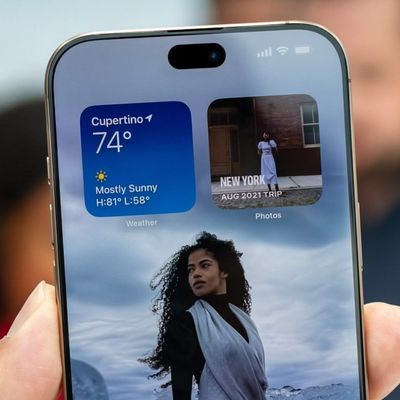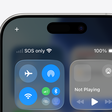Apple-Backed Didi Chuxing to Purchase Uber's Ride-Hailing Operations in China
Chinese ride-hailing service Didi Chuxing is set to acquire the Chinese operations of rival Uber in a $35 billion deal, reports Bloomberg and The Wall Street Journal. Apple notably invested $1 billion in Didi Chuxing back in May, giving Apple access to data and expertise on electric and autonomous car technology, as well as a foot in the door with the Chinese investment community.

The valuation of the combined ride-hailing company is $35 billion, the people said. Investors in Uber China, an entity owned by San Francisco-based Uber, Baidu Inc. and others, will receive a 20 percent stake in the combined company, the people said. Uber will continue to operate its own app in China for now.
Didi is making a $1 billion investment in Uber at a $68 billion valuation, people familiar with the matter said.
As noted in a forthcoming blog post by Uber CEO Travis Kalanick that was obtained by Bloomberg, neither Uber nor Didi Chuxing has turned a profit in China despite billions of dollars in investment, and combining operations will help smooth the path to profitability and a sustainable business.
Apple is of course widely rumored to be working on its own car-related project dubbed Project Titan, an effort that is an "open secret" in Silicon Valley according to Tesla CEO Elon Musk. The most recent developments with Project Titan include a new chief in veteran Apple executive Bob Mansfield and a new focus on autonomous driving software that could give Apple flexibility beyond plans to build its own vehicles.
Popular Stories
Apple is planning to debut a high-end secondary version of AirPods Pro 3 this year, sitting in the lineup alongside the current model, reports suggest.
Back in September 2025, supply chain analyst Ming-Chi Kuo reported that Apple is planning to introduce a successor to the AirPods Pro 3 in 2026. This would be somewhat unusual since Apple normally waits around three years to make major...
iOS 27 is still many months away, but there are already plenty of rumors about new features that will be included in the software update.
The first beta of iOS 27 will be released during WWDC 2026 in June, and the update should be released to all users with a compatible iPhone in September.
Bloomberg's Mark Gurman said that iOS 27 will be similar to Mac OS X Snow Leopard, in the sense...
MacBook Pro availability is tightening on Apple's online store, with select configurations facing up to a two-month delivery timeframe in the United States.
A few 14-inch and 16-inch MacBook Pro configurations with an M4 Pro chip are not facing any shipping delay, but estimated delivery dates for many configurations with an M4 Max chip range from February 6 to February 24 or even later. At...
Over the last few months, rumors around the iPhone 18 Pro's front-panel design have been conflicted, with some supply-chain leaks pointing to under-display Face ID, reports suggesting a top-left hole-punch camera, and debate over whether the familiar Dynamic Island will shrink, shift, or disappear entirely.
Today, Weibo-based leaker Instant Digital shared new details that appear to clarify the ...
While the iPhone 18 Pro and iPhone 18 Pro Max are not expected to launch for another eight months, there are already plenty of rumors about the devices.
Below, we have recapped 12 features rumored for the iPhone 18 Pro models, as of January 2026:
The same overall design is expected, with 6.3-inch and 6.9-inch display sizes, and a "plateau" housing three rear cameras
Under-screen Face ID...
![]()




















